When she lies dying, Ayumi reveals that the previous God Emperor whom she overthrew prior to Takuya’s arrival is the imposter Ryuuzouji. The more conventional narrative choice of the big bad of Sakaimachi being the evil overlord would explain the ongoing slavery and possibly fill in the plot hole regarding Ayumi’s ability to control Grandmother. But Kanno is so unwilling to challenge hierarchy that he cannot even make the theocratic dictator a villain whom Takuya must defeat. Rather than a ruler, the evil Ryuuzouji must be an outsider, must be a lowly prisoner whom Takuya frees out of two vices the ruthless intellectual Koudai failed to nurture out of him: ignorance and unmanly softheartedness.
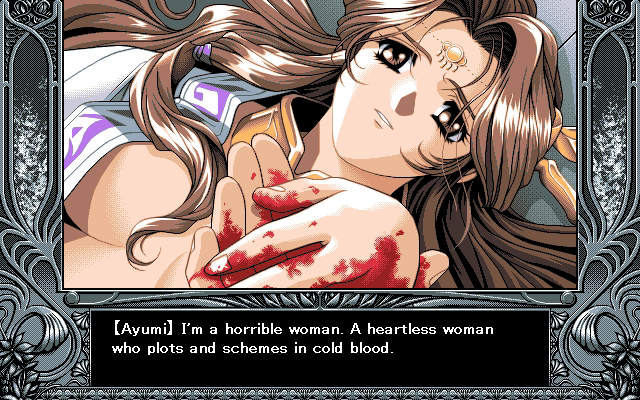
Ayumi expresses regret for the wrongs of her life but never mentions the deaths of workers, the slavery, the torture, or the dictatorship. Rather, Ayumi condemns herself as “a horrible woman” because she overthrew Ryuuzouji. Although Ryuuzouji is unambiguously evil, in YU-NO, opposing patriarchal authority is always wrong. This is why Eriko, and not the hero Takuya, must defeat Ryuuzouji.
The exposition on the nature of the God Emperor comes from Ayumi. But, subservient despite being the God Emperor, she is only a mouthpiece for Koudai in this scene. Her all-knowing husband, as she explains, hypothesized all this information in his research without ever even entering Dela Grante. The God Emperor whom the childlike “pure” Dela Grante “Celestial race” revere is the servant of a computer called Grandmother, “the real God Emperor.” The literal godlike father Koudai does not challenge the supremacy of the God Emperor, introducing the theocracy’s Gazel Tower to Takuya as “a dreadful machine that exacts the wrath of God on those who commit wrongdoings,” tacitly accepting an enslaved prisoner attempting escape as “wrongdoing.” If the God Emperor serves “Grandmother,” then the God Emperor, the computer’s child, would be “Father” (or “Mother,” in Ayumi’s case).
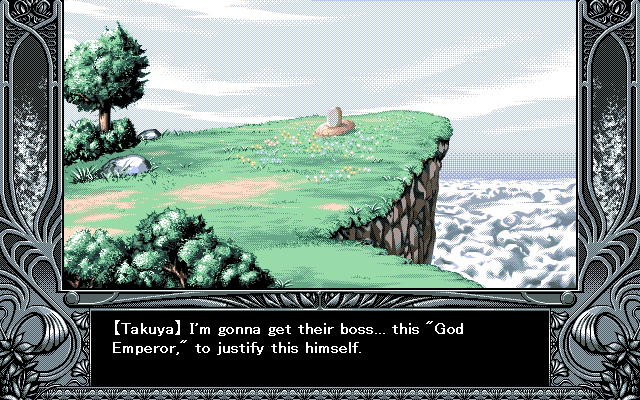
Through the analogy of Sakaimachi to Dela Grante, then, the abuse that the state and corporations heap on the public parallels Koudai’s abuse of Takuya and the paternalistic God Emperor’s abuse of the childish public. For, prior to the discovery of her identity as a different parent, the God Emperor is a clear Koudai analogue: in the ADMS segment, the player embarks on a quest to punch Koudai in the face and “then listen to his excuse” for his behavior, for mistreating his family. In the Epilogue, Takuya embarks on a quest to “get [the God Emperor…] to justify this himself,” to give an excuse for his mistreatment of Takuya’s family, and, as he tells Sala, to punch the God Emperor in the face.
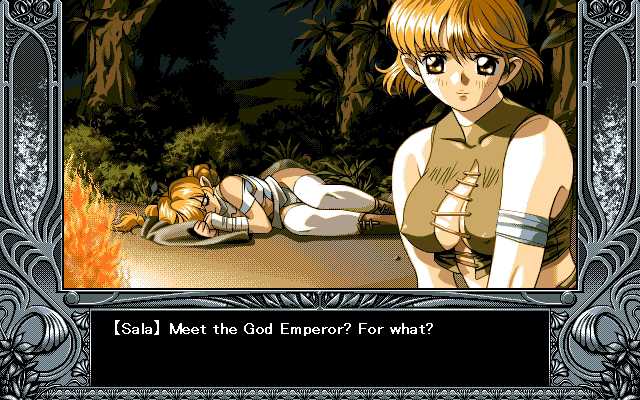
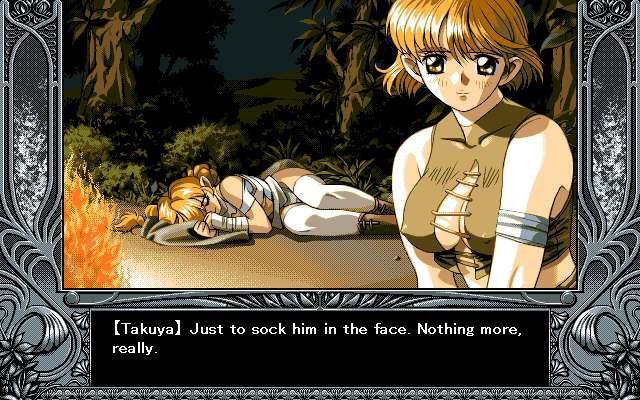
It is the same quest. When Takuya and the player learn that the God Emperor should be respected, they also overcome their negative feelings toward Koudai. In YU-NO these social systems stir ambivalence, like the emotions of the child in the Oedipus complex, as inflicting genuine suffering yet fundamentally natural and wrong to oppose. For, in YU-NO, like Koudai’s treatment of Takuya, this abuse is essentially fine.
That Takuya notes far-right organizations despise Koudai (for claiming Japan was influenced by aliens) does little to change the alarming implications of the story’s interlinked ethical and social perspectives, particularly given the connection to semi-pedophiliac incest. The most sympathetic protester in YU-NO is Kanna, who initially earns the player’s sympathy after they witness her confronting Toyotomi and, following a harangue in which he demands she go through “proper procedures” at court instead of protesting, fainting from exhaustion.
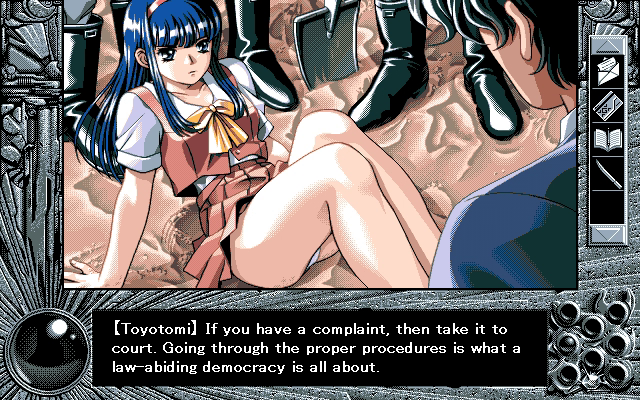
However, beyond the ineffectiveness of her direct action, Kanna later clarifies that she is part of no social movement and takes her stand not for environmentalism or any other social cause. “I do not take part in any such activism,” Kanna repeats to Takuya. “I only appealed to them for their own sake.” In the moral universe of YU-NO, for their complete evil, Toyotomi and the slave camp Chief are on par with the imposter Ryuuzouji. But as with Koudai’s toxic and rigid gender standards, there are ambivalent emotions even as there is only one concrete conclusion: in YU-NO, opposing cruel, corrupt power structures dealing in physical and sexual violence is at best naïve, ineffective, and misguided. Authority cannot be challenged because the ultimate embodiment of abusive authority is Koudai, a god who can never be wrong and whom YU-NO exists to vindicate.